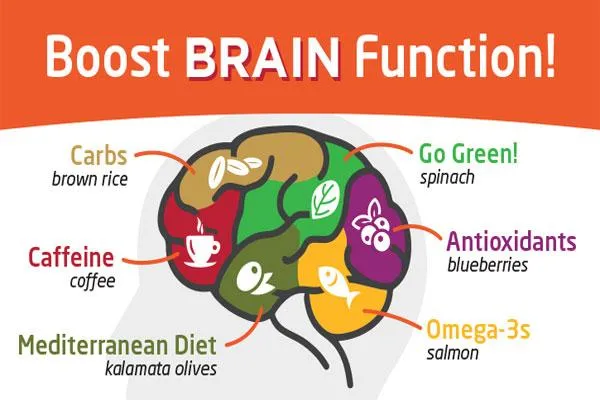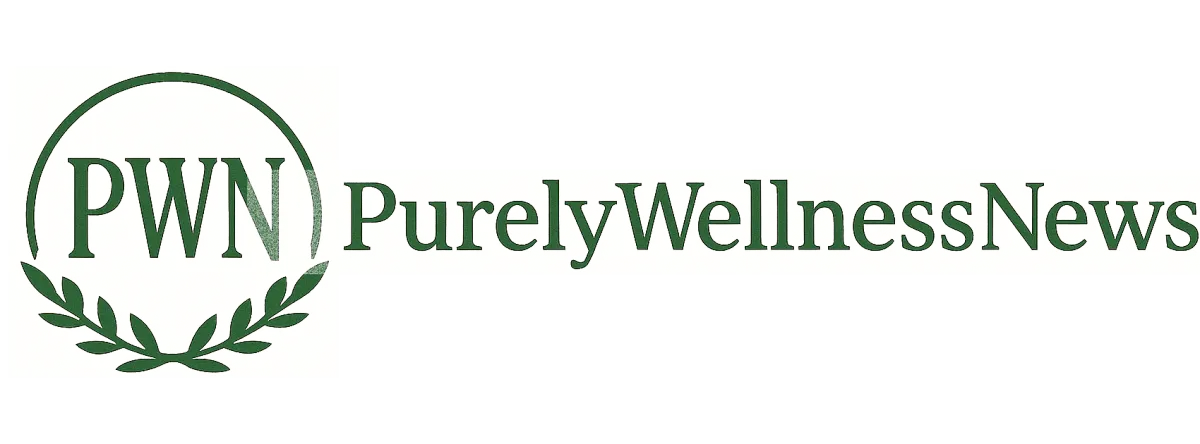
PWN Trending Aug 21 2025
Nutrition Trends Impacting Cognitive Function (2025): What’s Changing—and What It Means in the United States
Brain health is moving from niche to mainstream. As Americans grapple with long-COVID brain fog, burnout, and an aging population, nutrition is becoming a core lever for preserving memory, focus, and processing speed. Below is a deep, evidence-minded look at the nutrition trends shaping cognitive function—and how they’re being applied across clinics, wellness programs, and everyday kitchens.
Health note: This article is educational and not a substitute for medical advice. Individual needs vary—speak with your clinician or a registered dietitian.
1) Mediterranean & MIND Dietary Patterns Go Mainstream
What’s trending: Mediterranean and MIND (Mediterranean–DASH Intervention for Neurodegenerative Delay) patterns emphasize vegetables, fruit (especially berries), legumes, whole grains, fish, nuts, olive oil, and modest dairy; they limit red/processed meats and sweets.
Why it matters for cognition: Observational and interventional research links these patterns to slower cognitive decline, reduced risk of dementia, and better executive function—likely via anti-inflammatory, vascular, and insulin-sensitizing effects.
How to apply it:
Base meals around plants and extra-virgin olive oil.
Aim for 2+ fish servings/week (salmon, sardines, trout).
Make berries the default dessert 3–5×/week.
Swap refined grains for whole grains/legumes.
2) Omega-3s and the “Seafood Gap”
What’s trending: Higher emphasis on EPA/DHA intake from fish or algae-based supplements for those who avoid seafood.
Cognitive angle: DHA is a major structural fat in neuronal membranes. Adequate intake supports synaptic function and may improve attention, processing speed, and mood—especially when baseline intake is low.
Practical: 2–3 palm-sized portions of oily fish weekly; algae-DHA for vegetarians/vegans under guidance.

3) Polyphenols & Brain-Diverse Plants
What’s trending: Berries, cocoa (dark chocolate), colorful veggies, extra-virgin olive oil, herbs/spices (turmeric, rosemary, saffron), and green tea.
Why it matters: Polyphenols modulate oxidative stress, vascular function, and gut–brain signaling. Regular intake associates with better memory and executive function and may complement sleep and exercise routines.
Practical: “Eat the rainbow”—5+ colorful plant servings/day; swap sugary snacks for berries/cocoa nibs; brew green tea for a calm-focus lift.
4) Glycemic Stability > Sugar Spikes
What’s trending: Managing post-meal glucose swings (via fiber, protein, and fat pairing) to improve energy and focus.
Why it matters: High glycemic variability can impair attention and fatigue levels; stabilizing meals (and spacing caffeine) supports sustained mental performance.
Practical:
Front-load protein (20–40 g) per meal; add healthy fats (olive oil, nuts).
Start meals with vegetables or a salad to blunt glucose spikes.
Choose intact whole grains/legumes over refined carbs.
5) The Gut–Brain Axis: Prebiotics, Probiotics, and Ferments
What’s trending: Foods that support microbiome diversity—prebiotic fibers (onions, garlic, leeks, asparagus, oats), fermented foods (yogurt, kefir, kimchi, sauerkraut), and polyphenol-rich plants.
Cognitive angle: Microbial metabolites (e.g., short-chain fatty acids) and immune signaling influence neuroinflammation and mood. Diets richer in fermented foods and fibers link to improved stress resilience and attention.
Practical: 1–2 fermented servings/day; rotate fibers; consider probiotic foods before supplements.
6) Protein Quality, Iron, B12, Choline & Iodine: The “Neuro-Nutrients”
What’s trending: Filling common micronutrient gaps that quietly sap cognition—especially in certain life stages/diets.
Protein & creatine: Adequate protein supports neurotransmitter precursors and satiety. Creatine monohydrate shows cognitive benefits in sleep-deprived and plant-based populations.
Iron: Deficiency (even mild) impairs attention and processing speed—screen in fatigue, heavy training, or low-iron diets.
B12 & folate: Support myelination and methylation; low levels can mimic cognitive decline.
Choline: Essential for acetylcholine; eggs, soy, and liver are rich sources.
Iodine: Critical for thyroid hormones that regulate brain energy metabolism.
Practical: Periodic labs for at-risk groups (vegans, older adults, athletes, heavy menstruation). Replete through food first; supplement only as needed.
7) Hydration, Electrolytes & Caffeine Strategy
What’s trending: Treating hydration as a cognitive variable, not just a fitness metric. Moderate caffeine paired with L-theanine (via tea) for calm alertness.
Cognitive angle: Mild dehydration reduces attention and working memory. Caffeine boosts vigilance but can disrupt sleep if mistimed.
Practical:
Target pale-yellow urine; add electrolytes during long heat/workouts.
Keep caffeine before early afternoon; consider tea for a smoother curve.
8) Intermittent Fasting, Time-Restricted Eating & Ketones
What’s trending: Time-restricted eating (e.g., 10–12-hour daytime window) for circadian alignment and metabolic health; interest in ketogenic patterns or exogenous ketones for certain therapeutic contexts.
Cognitive angle: Improved insulin sensitivity and mitochondrial efficiency may support clarity; however, tolerance varies and strict keto isn’t for everyone.
Practical: Start with consistent meal timing and a 12-hour overnight fast if appropriate; medical supervision for restrictive approaches or if underweight/pregnant/with diabetes therapy.
9) Ultra-Processed Foods (UPFs) Under the Microscope
What’s trending: Reducing UPFs—high in refined starches/sugars, industrial fats, and additives.
Cognitive angle: Diets heavy in UPFs correlate with higher inflammation, disrupted satiety, and worse sleep—indirectly impacting cognition and mood.
Practical: Cook more at home; check labels; base snacks on nuts, fruit, yogurt, hummus rather than packaged sweets.
10) Supplement Reality Check: Evidence & Safety
What’s trending: A shift from “more is better” to “targeted, test-informed supplementation.”
Solid footing: Omega-3s (EPA/DHA) in low-intake individuals; creatine (select cases); vitamin D for deficiency; B12/iron/iodine when low.
Mixed/early evidence: Curcumin, saffron, resveratrol, phosphatidylserine, ginkgo, nootropic stacks—benefits vary; watch for interactions and quality.
Practical: Verify need with a clinician; choose third-party–tested products; monitor sleep, BP, and interactions.

Equity & Access: Making Brain-Healthy Nutrition Achievable
Food affordability & availability: SNAP/produce prescriptions, mobile markets, and culturally attuned Mediterranean-style menus matter.
Education & cooking skills: Community classes and short video modules boost adoption.
Workplace & school settings: Smarter canteen defaults (fish, legumes, greens) improve reach.
Action Plan (Save/Print)
Daily pattern: Mediterranean/MIND base with 25–35 g fiber, 2–3 L water (individualize).
Protein: ~1.0–1.6 g/kg/day depending on activity; consider creatine if plant-based or sleep-restricted.
Fats: Prioritize extra-virgin olive oil, nuts, seeds; include fish 2–3×/wk.
Plants: 5+ colorful servings/day; berries 3–5×/wk; fermented foods 1–2/day.
Carbs: Favor intact whole grains/legumes; pair carbs with protein/fat to steady glucose.
Micronutrients: Screen iron/B12/folate, vitamin D, iodine, and address gaps.
Caffeine & sleep: Keep caffeine early; protect 7–9 hours of sleep.
UPFs: Crowd out with simple home-cooked meals and smart snacks.









